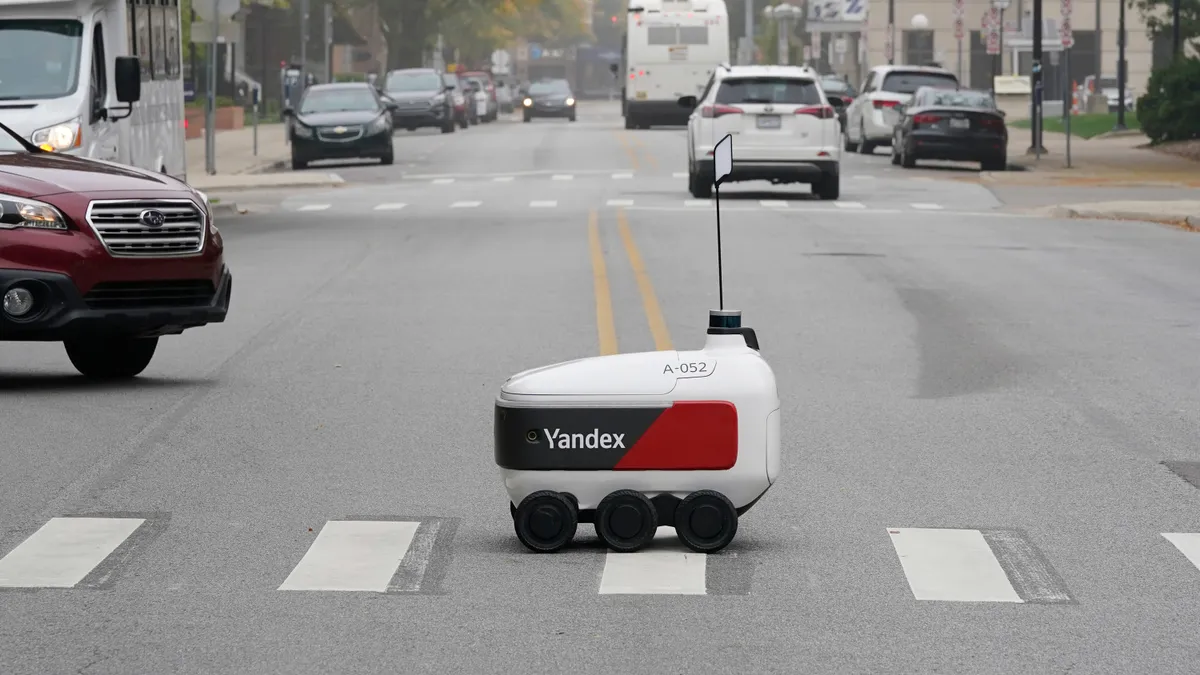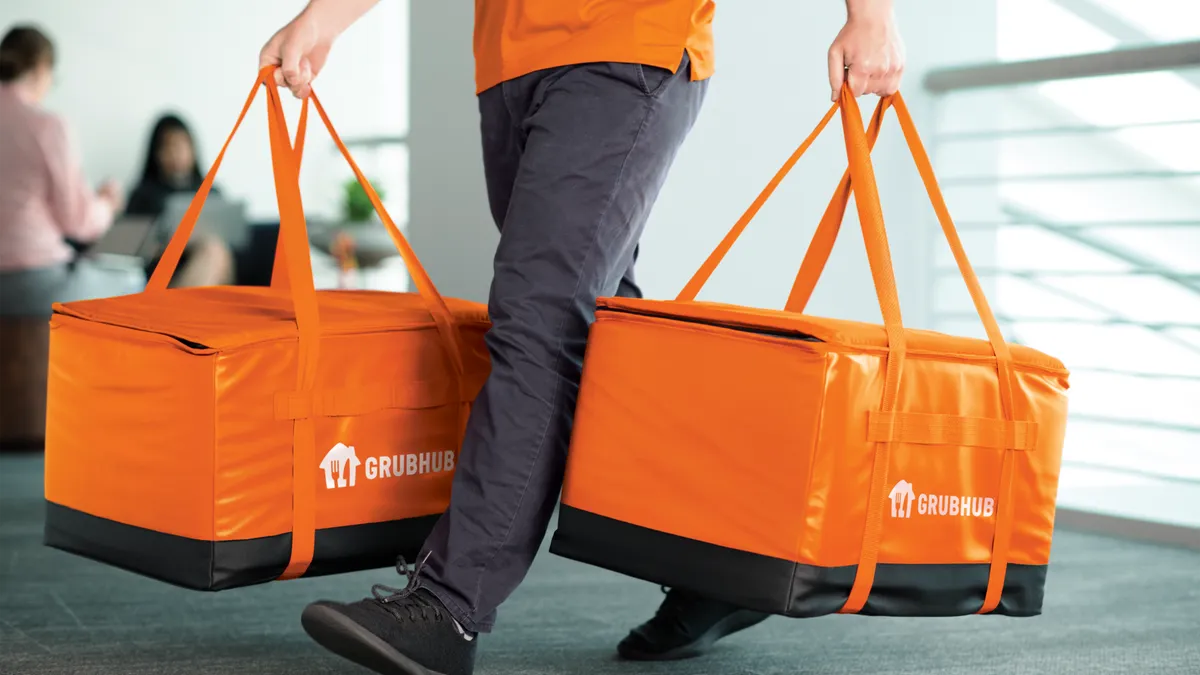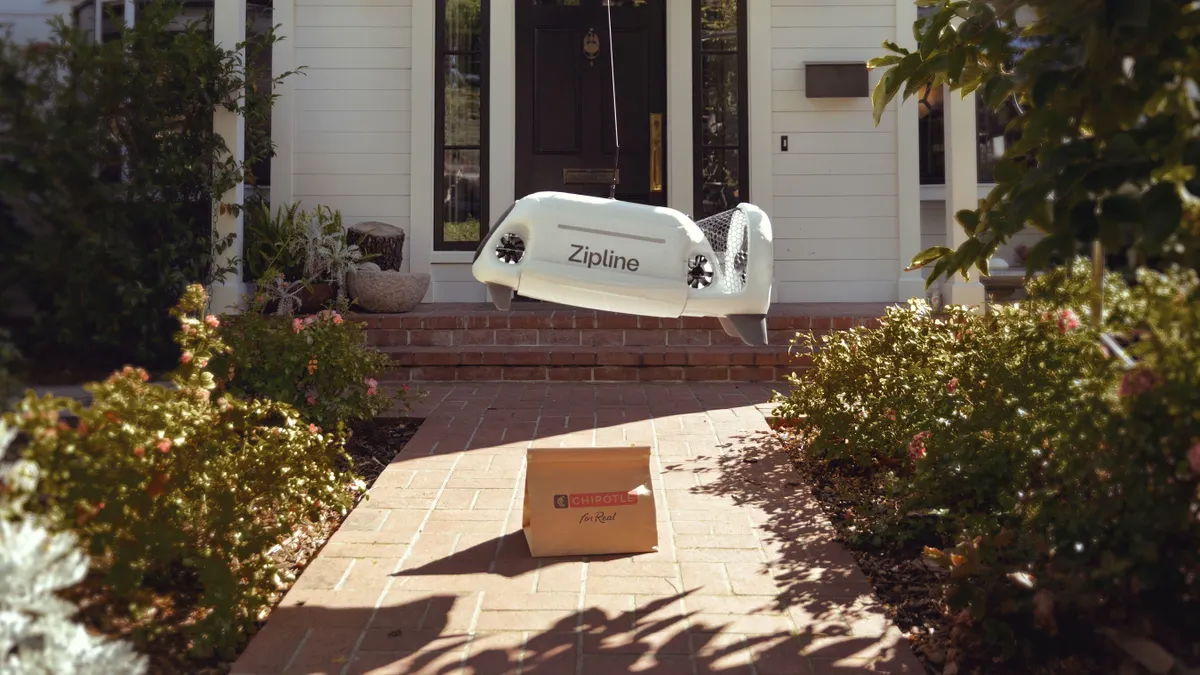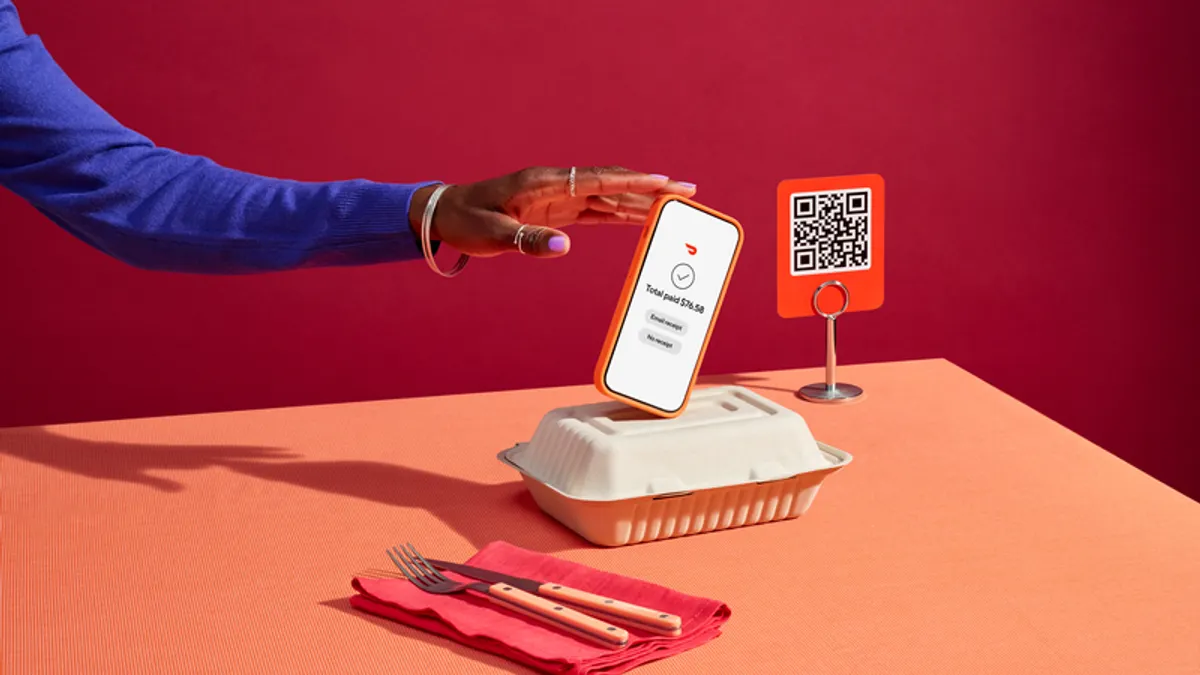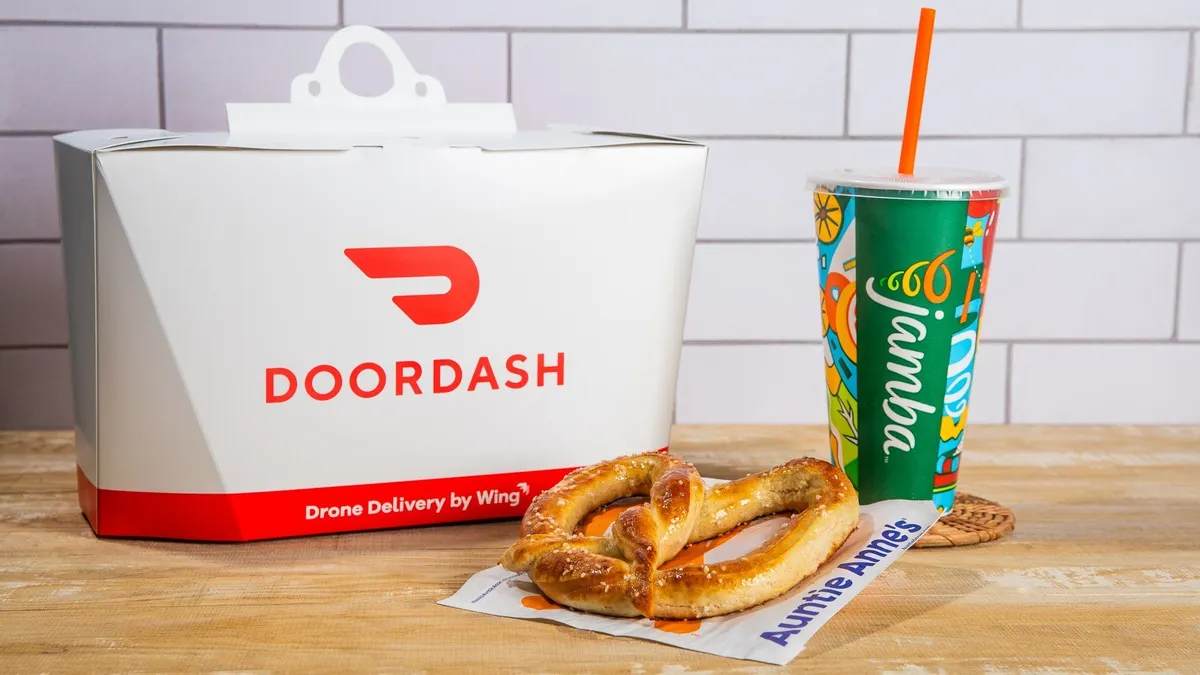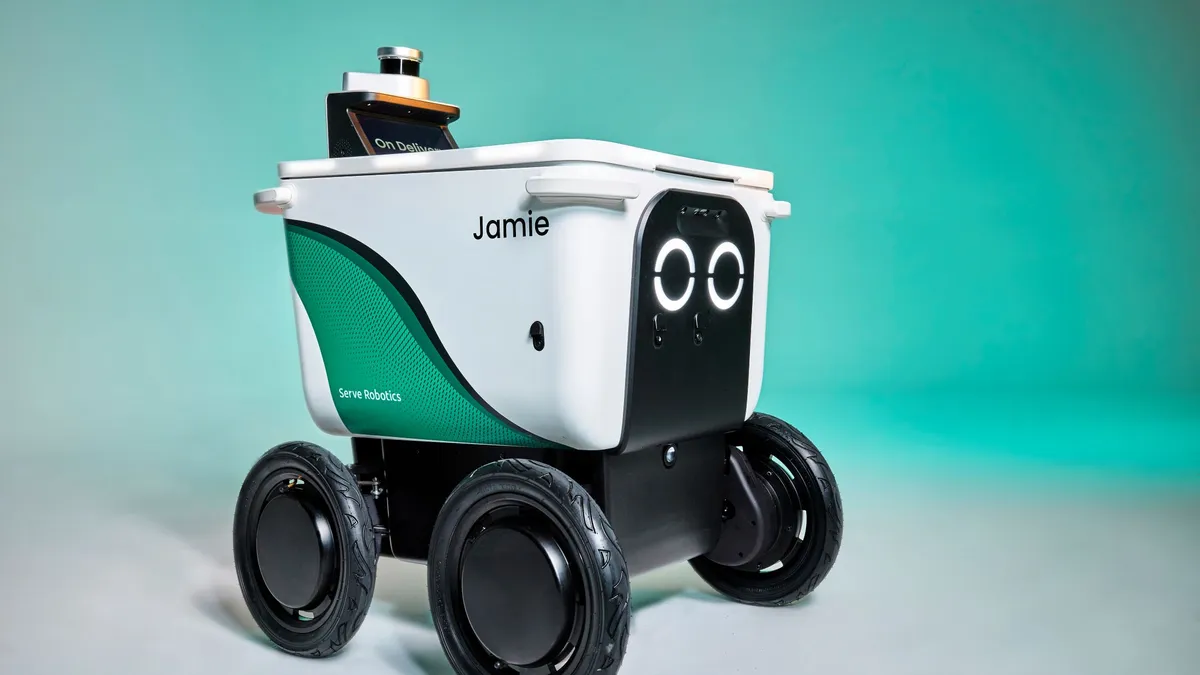States can't seem to agree on how to handle sidewalk delivery robots.
Bots as heavy as 500 pounds can roam as fast as 4 miles per hour on Georgia sidewalks under state laws. In New Hampshire, robots can travel up to 10 miles per hour on sidewalks, but they can't weigh more than 80 pounds.
At 2022's end, at least 23 states had some type of law governing how these delivery robots can ferry goods within their borders, according to data from the Pedestrian and Bicycle Information Center and Supply Chain Dive research.
Sidewalk-navigating delivery bot bills spread across the nation
The proliferation of state laws around the deployment of delivery bots has been somewhat of a double-edged sword for tech developers. While companies can have more of a say in crafting legislation at the ground floor, the patchwork nature of these laws has also complicated national expansion.
"It is going to be a nightmare to get all the states on the same page — there is massive variation," said Ritukar Vijay, CEO and co-founder of delivery bot company Ottonomy.
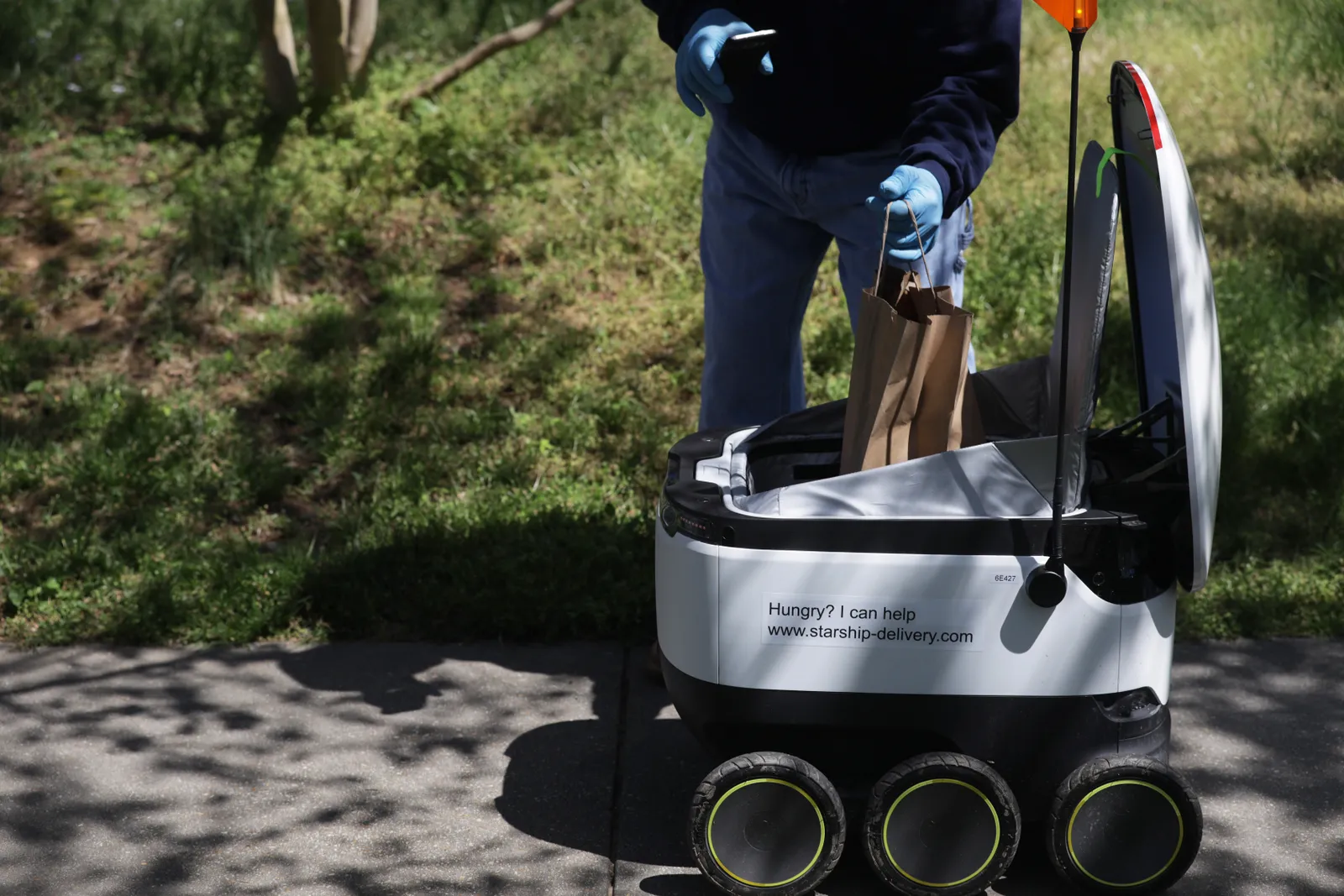
Delivery bots invade statehouses
While no states outright ban delivery bots, tech developers have decided to take a cautious approach to expansion rather than flood the market with robots and risk backlash.
"We don't do the 'ask for forgiveness rather than permission' approach," said Serve Robotics CEO and co-founder Ali Kashani, noting how rapid expansion of e-scooters eventually soured public sentiment.
Legislation has often been developed with the guiding hand of delivery bot operators. Starship Technologies, which has a partnership with Grubhub to roll out sidewalk bots to college campuses, worked with lawmakers to advance bills in Virginia, Idaho, Wisconsin and other states.
State legislatures don't always side with business interests, requiring bot developers to be actively engaged in the political process. Starship CEO Alistair Westgarth said the company has seen proposed bills that, despite intentions to provide a safe rollout, would have ultimately hindered delivery service.
Ultimately, companies have to strike a balance between meeting their business objectives while addressing concerns over safety. That approach has helped Starship create value for both customers and the communities its bots operate in, Westgarth added.
Political engagement also gives businesses a leg-up in ensuring their designs can be deployed smoothly. Variance in state laws often depends on which bot operator led the charge to pass a particular bill, said Carl Hansen, vice president and head of government relations of delivery bot company Coco.
Starship's work to pass legislation in 2017 and 2018, for example, was geared toward the particular characteristics of its robot, which can hold around 20 pounds of goods. Then, Amazon and FedEx pushed for legislation in 2019 and 2020 that catered to the different use cases for their particular bots, Hansen said. FedEx's Roxo bot, which the company canceled to prioritize nearer-term goals, had 100 pounds of capacity.
But in some state legislatures, companies have had to contend with more stiff resistance. Kansas Gov. Laura Kelly vetoed a 2022 bill that would have established rules for delivery bots to operate on sidewalks. She said in an explanation of the veto that lawmakers still had to address safety concerns like clarifying minimum liability provisions and who would oversee enforcement. There was no motion to reconsider the bill, which also generated concerns related to courier job security.
Despite some opposition, legislation for sidewalk-traveling delivery bots has had clear momentum across statehouses. The push to regulate bot deployment is also somewhat recent — all of the bills signed into law were introduced in 2017 or later.
"They'll keep popping up," Tom Holland, a Kansas state senator who opposed the bill in his legislature, said of new delivery bot legislation.
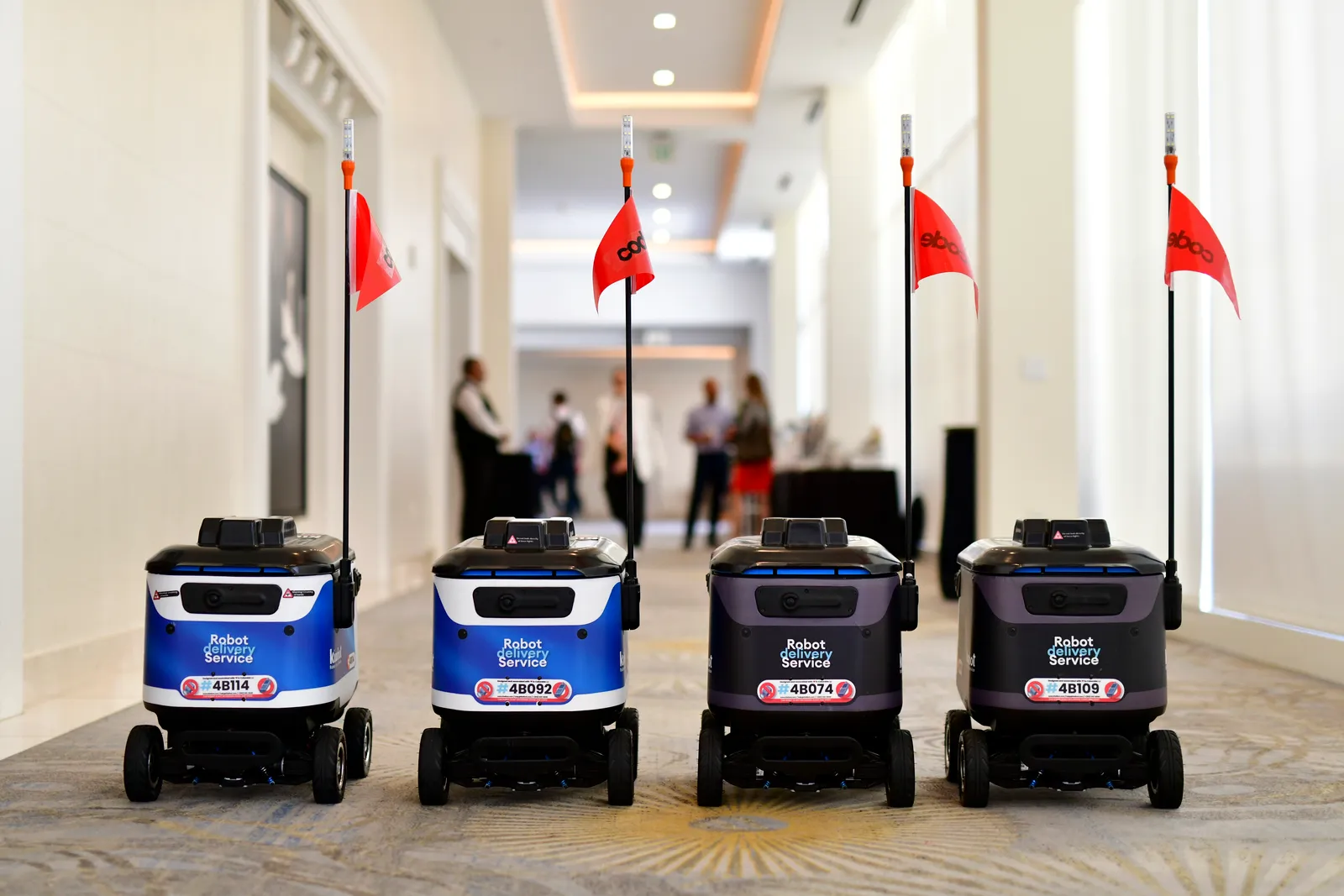
A tough transition from statehouses to sidewalks
Regulatory approval doesn't guarantee a smooth rollout. Operators and regulators have received some hard — but necessary — lessons through various tests, some conducted after laws were enacted.
Pennsylvania signed delivery bot legislation into law in 2020, and the state's transportation department authorized Kiwibot to make deliveries in 2021. The company made deliveries in Pittsburgh between September and December of that year as part of the Urbanism Next Center's Knight Autonomous Vehicle Initiative, a $5.25-million effort to help cities develop a people-centered approach to the technology.
Through the pilot program, the bots could make deliveries for a food truck, a pharmacy and a library in Pittsburgh's Bloomfield neighborhood, per a report from the center. But the robots quickly ran into issues, unable to overcome cracked sidewalks or obstructions like overgrown trees.
In total, Kiwibot completed four deliveries to customers and 972 simulated deliveries through the pilot. The company ultimately decided against a rollout in the neighborhood due to "infrastructure challenges," the report said.
In Detroit, where Kiwibot also tested out robot delivery in partnership with the Knight AV initiative, a local restaurant had issues getting their staff trained on using the technology, said Tim Slusser, director of mobility innovation for the city.
By the time restaurant employees were familiar with the delivery bots, the business encountered staffing challenges and returned to their standard systems to minimize disruptions. The pilot then moved to a second local restaurant, but that presented its own issues — namely a lack of customer engagement.
"Candidly, I believe it was just a little bit [of] a lack of awareness from the consumers that this was even an option," Slusser said. "So what we ended up doing is working with the Kiwibot team to help them simulate as many runs as possible from different places that those restaurants typically have it delivered to."
Kiwibot only made 12 customer deliveries as part of the test in Detroit, but Slusser said the city has since become better prepared for new bot initiatives, such as Starship's deployment on Wayne State University's campus.
Experts say more pilot programs like what occurred in Pittsburgh and Detroit will be necessary to weed out potential implementation issues.
"It's not a technology issue in many ways," said Karen Lightman, executive director of Metro21 at Carnegie Mellon University, a research and implementation lab for smart cities. "It's often the application, the human side and the policy side where it gets complicated and a little messy."
News Graphics Developer Jasmine Ye Han and Visuals Editor Shaun Lucas also contributed to this story.



